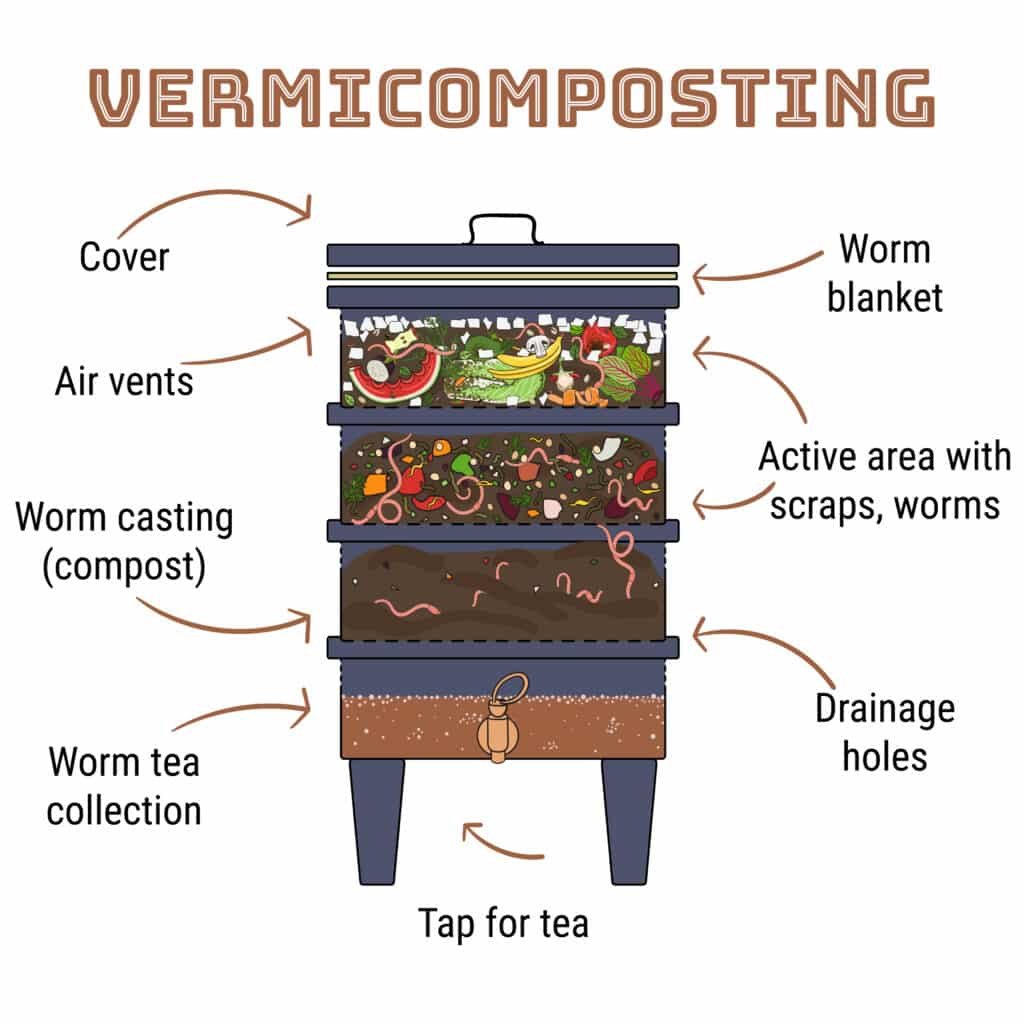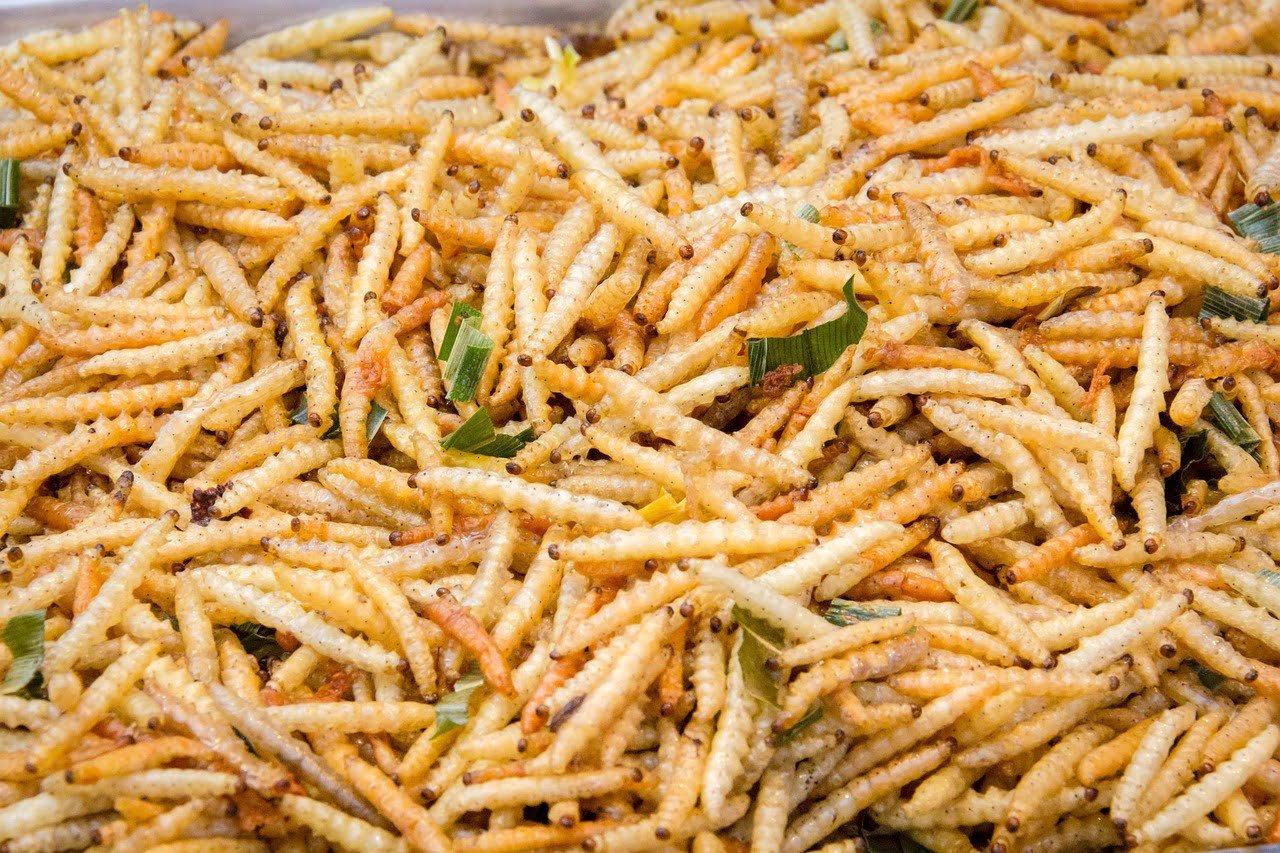
Summary of Contents
Introduction
Think of worms as your farm’s secret superheroes—they work tirelessly behind the scenes, transforming your waste into rich, nutrient-packed compost. No, really! Vermicomposting is nature’s way of recycling, using earthworms to break down organic waste and turn it into black gold (also known as worm castings or vermicast).
On my farm in Northeast India, vermicomposting has been a game-changer. The rugged soil here needs a little extra TLC, and vermicomposting helps improve soil fertility without any synthetic fertilizers. Trust me—your farm or garden will thank you once you unleash the power of worms!
What Is Vermicomposting?
Vermicomposting is the process of using earthworms to break down organic waste into nutrient-rich compost. The worms eat through kitchen scraps, plant material, and even manure, leaving behind worm castings (basically, worm poop!). This cast is packed with nutrients that can do wonders for your soil and plants.
In Northeast India, where we grow crops on hilly terrain, vermicomposting works perfectly because it naturally improves soil structure, helps retain moisture, and enhances fertility. It’s like having a team of tiny farmers working 24/7 to keep your soil healthy!
Step 1: Start with the Right Worms (They’re Like the VIPs of Composting)
Not all worms are created equal. For vermicomposting, you’ll need the superstars of the worm world—red wigglers (Eisenia fetida). These worms are excellent at breaking down organic matter quickly and thrive in compost bins.
You can easily find red wigglers online or at a local farm supply store. Once they’re in your compost bin, they’ll get straight to work munching through all those food scraps and plant waste like it’s a buffet!
Step 2: Feed Your Worms Right (No Pizza Allowed!)
Worms are pretty picky eaters, but in a good way. They love plant-based kitchen scraps like fruit peels, vegetable leftovers, coffee grounds, and even eggshells. Just be careful to avoid feeding them meat, dairy, or oily foods—those can attract pests and make your bin smell funky.
Here’s a trick I use on my farm: I alternate green (nitrogen-rich) and brown (carbon-rich) materials, just like we do in regular composting. This keeps the pile balanced and the worms happy.
Step 3: Maintain the Bin (Your Worms Like It Cool and Moist)
Worms are low-maintenance, but they do have a few preferences. They like a dark, cool, and moist environment—think of it as the worm version of a cozy cabin in the hills of Arunachal Pradesh. If your bin gets too dry, just sprinkle some water. Too wet? Add more brown materials like cardboard or straw to balance things out.
Turn the bin every now and then to introduce oxygen. Before you know it, the worms will have created rich, dark compost ready to use in your garden.
Benefits of Vermicomposting
Now for the juicy part—why should you start vermicomposting? Here are the top 7 benefits of vermicomposting that will make you want to grab a bin and some worms right now:
1. Improves Soil Structure
Earthworms are nature’s soil engineers. As they move through the soil, they create tunnels that help air and water reach plant roots. This improves soil structure, making it lighter and easier for crops to grow—especially in the clay-heavy soils of some parts of Northeast India.
2. Boosts Nutrient Availability
Worm castings are like an all-natural fertilizer, rich in nitrogen, phosphorus, and potassium. These nutrients are essential for plant growth, meaning your crops will be stronger and healthier with just a little sprinkle of vermicast.
3. Reduces Organic Waste
Instead of tossing kitchen scraps in the trash, vermicomposting lets you recycle them into something useful. It’s like turning garbage into treasure! In rural areas of Northeast India, where waste management options can be limited, vermicomposting is a great solution for managing organic waste.
4. Provides Natural Pest Resistance
Worm castings contain beneficial microbes that can help suppress plant diseases and repel certain pests. Think of it as giving your plants a natural defense system without the need for chemicals.
5. Increases Crop Yields
Healthier soil means healthier plants—and healthier plants mean better yields. By improving the overall soil health with vermicompost, you’ll see your crops grow faster, stronger, and produce more food.
6. Promotes Eco-Friendly Farming
Vermicomposting is a 100% natural process, meaning no harmful chemicals or synthetic fertilizers are involved. It’s an eco-friendly practice that aligns perfectly with organic farming principles and helps protect the delicate ecosystems found in regions like Northeast India.
7. Low-Cost and Easy to Manage
Starting a vermicomposting system is inexpensive and doesn’t require a lot of space or effort. Once you get the hang of it, it practically takes care of itself—perfect for small farms and urban gardens alike!
Challenges of Vermicomposting
Like any farming practice, vermicomposting has its challenges:
- Temperature Sensitivity
Worms thrive in cooler temperatures (between 55-77°F), so managing the bin in extreme heat or cold can be tricky. In places like Assam, keeping the bin cool during the hot summers is key to keeping the worms happy. - Pests
If you add the wrong materials to your bin (like meat or dairy), pests such as flies or rats can become a problem. Stick to plant-based scraps to avoid this issue. - Time
Vermicomposting is not a quick fix. It can take anywhere from 3 to 6 months for the worms to produce enough usable compost. But trust me—the end result is worth the wait!
Best Practices for Vermicomposting
Want to get the most out of your vermicomposting system? Here are some best practices to follow:

- Keep It Moist
Worms need a damp environment to do their best work. The compost should feel like a wrung-out sponge—not too wet, but not too dry either. - Balance Your Ingredients
Just like regular composting, it’s important to balance green (nitrogen-rich) materials with brown (carbon-rich) materials. Too much green, and your bin will get smelly. Too much brown, and decomposition slows down. - Harvest Regularly
Every few months, collect the rich worm castings from the bottom of your bin and start a new batch. Your plants will love the extra nutrients!
Economic Insights: Vermicomposting Saves Money!
One of the great things about vermicomposting is that it can save you money in multiple ways:
- No Need for Chemical Fertilizers
Worm castings are a natural fertilizer, so you won’t need to spend money on synthetic fertilizers. This makes vermicomposting a low-cost, sustainable solution for enriching soil. - Increased Crop Yields
Healthy soil leads to healthier plants and higher yields, which means more produce to sell or consume. - Reduces Waste Management Costs
By composting kitchen and plant waste, you reduce the amount of trash that needs to be hauled away or burned, cutting down on disposal costs.
Conclusion: Worms to the Rescue!
The benefits of vermicomposting go way beyond simply managing waste. It improves soil health, boosts plant growth, and supports sustainable farming—all while being easy and affordable to start. Whether you have a small garden or a large farm in the hills of Northeast India, vermicomposting is the key to healthier soil and bigger, better crops.

Ready to start your vermicomposting journey? Grab a bin, add some worms, and let nature do the rest. Trust me—your plants (and your wallet) will thank you!
FAQ Section
What are the three types of vermicomposting?
The three types of vermicomposting are bed method, where organic waste is composted in layers on the ground; pit method, where waste is buried in pits for worms to decompose; and vermicomposting bins, commonly used in smaller spaces or urban areas.
What are the 3 main types of worms?
The three main types of worms used in vermicomposting are Red Wigglers (Eisenia fetida), European Nightcrawlers (Eisenia hortensis), and African Nightcrawlers (Eudrilus eugeniae). These worms are efficient at breaking down organic matter.
Which type of vermicompost is best?
Red Wigglers (Eisenia fetida) are generally considered the best worms for vermicomposting due to their ability to process large amounts of organic waste quickly and thrive in compost bins.
What are the sources of vermicomposting?
The sources of vermicomposting include kitchen scraps (like vegetable peels, fruit waste), farm waste (like manure, plant residue), and garden waste (like leaves and grass clippings), all of which worms can break down into rich compost.
What is the principle of vermiculture?
The principle of vermiculture is the cultivation of earthworms to convert organic waste into nutrient-rich compost, improving soil fertility and structure while promoting sustainable waste management.
What is the difference between vermiculture and vermicomposting?
Vermiculture is the practice of breeding and raising earthworms, while vermicomposting specifically refers to using those worms to decompose organic waste into compost. Vermiculture focuses on worm production, whereas vermicomposting focuses on soil enrichment.
